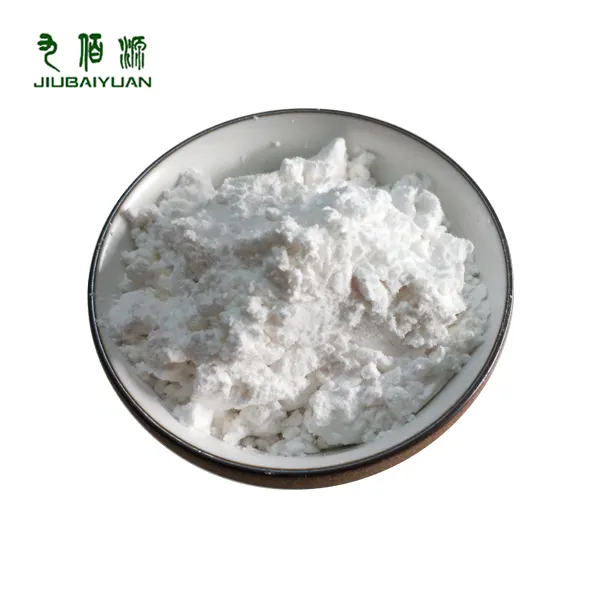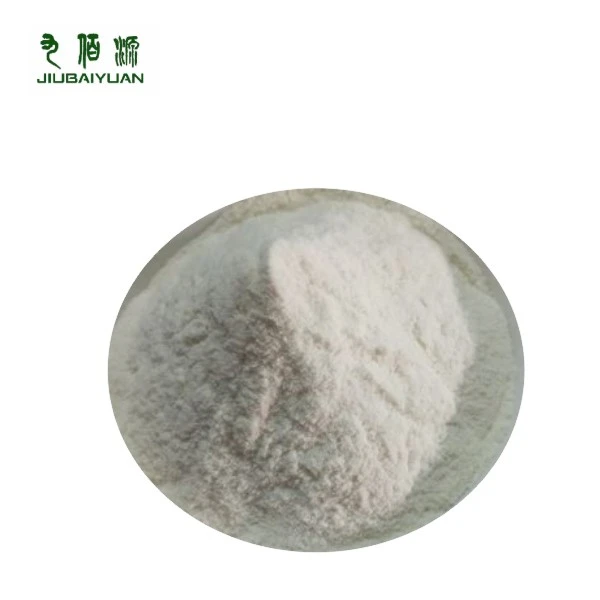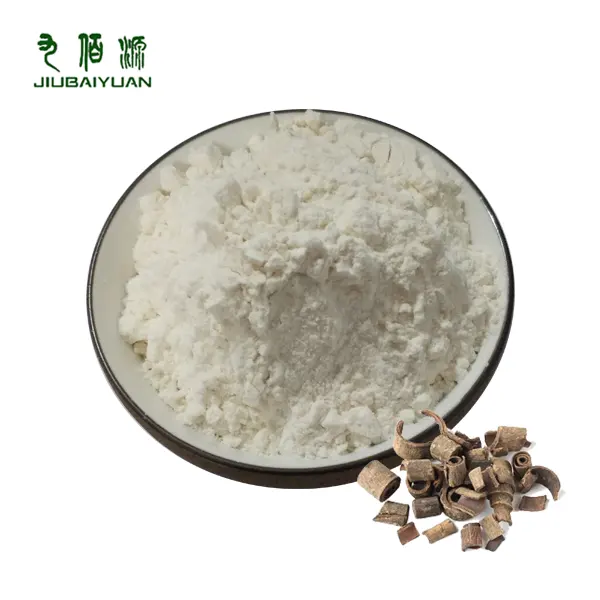Everything You Need to Know About Retatrutide Powder
Retatrutide powder has emerged as a promising new treatment for obesity and type 2 diabetes. This innovative medication has shown remarkable results in clinical trials, outperforming existing weight loss drugs. In this comprehensive guide, we'll explore the mechanisms behind retatrutide, how to use it effectively, and potential alternatives for weight management.
The Mechanism of Action of Retatrutide Powder
Retatrutide is a novel compound that works by mimicking three key hormones in the gut: GLP-1, GIP, and glucagon. This unique triple-agonist approach allows retatrutide to exert multiple beneficial effects on metabolism and appetite control:
- GLP-1 (glucagon-like peptide-1) mimicry: Enhances insulin secretion, slows gastric emptying, and reduces appetite.
- GIP (glucose-dependent insulinotropic polypeptide) mimicry: Improves insulin sensitivity and promotes fat metabolism.
- Glucagon mimicry: Increases energy expenditure and fat oxidation.
By targeting these three hormonal pathways simultaneously, retatrutide powder achieves a synergistic effect on weight loss and glucose regulation. This multi-faceted approach helps explain why retatrutide has demonstrated superior efficacy compared to single-agonist medications like semaglutide (Wegovy) or dual-agonist drugs like tirzepatide (Mounjaro/Zepbound).
In clinical trials, retatrutide has shown impressive results:
- Substantial weight loss: Participants taking higher doses of retatrutide (8mg or 12mg) all lost at least 5% of their body weight over 11 weeks. Many achieved even more significant reductions, with some losing up to 30% of their initial weight.
- Improved glucose control: 72% of prediabetic participants saw their blood glucose levels normalize by the end of the study.
- Cardiovascular benefits: Many participants were able to reduce or discontinue blood pressure medications.
- Metabolic improvements: Retatrutide use was associated with positive changes in various cardiometabolic markers, including lipid profiles and insulin sensitivity.
These results suggest that retatrutide powder could revolutionize the treatment of obesity and related metabolic disorders, offering hope to millions struggling with weight management and diabetes.
Dosage and Administration: How to Take Retatrutide Powder
While retatrutide is still undergoing clinical trials and has not yet received FDA approval for widespread use, the current research provides insights into its potential dosing and administration:
- Delivery method: Retatrutide is administered as a weekly subcutaneous injection.
- Dosage range: In clinical trials, doses ranging from 1mg to 12mg per week have been studied. The most promising results were seen at higher doses (8mg and 12mg).
- Titration: Like other GLP-1 receptor agonists, retatrutide will likely require a gradual dose escalation to minimize side effects and optimize tolerability.
- Duration: The full weight loss effects of retatrutide may take several months to manifest. In trials, significant results were observed over 72 weeks of treatment.
It's crucial to note that retatrutide powder should only be used under the guidance of a healthcare professional. When it becomes available, your doctor will determine the appropriate starting dose and titration schedule based on your individual needs and medical history.
To maximize the benefits of retatrutide treatment, it's recommended to combine medication use with lifestyle modifications:
- Follow a balanced, calorie-controlled diet rich in fruits, vegetables, lean proteins, and whole grains.
- Engage in regular physical activity, aiming for at least 150 minutes of moderate-intensity exercise per week.
- Stay well-hydrated and get adequate sleep to support overall metabolic health.
- Monitor your progress and communicate regularly with your healthcare team to adjust treatment as needed.
As with any medication, retatrutide may cause side effects. Common reactions observed in clinical trials included nausea, diarrhea, and vomiting. These symptoms often improved with continued use and dose titration. Your doctor will monitor you closely for any adverse effects and adjust your treatment plan accordingly.
Potential Alternatives to Retatrutide Powder for Weight Loss
While retatrutide powder shows immense promise, it's not yet widely available. In the meantime, several other FDA-approved medications and strategies can aid in weight loss and metabolic health improvement:
- Semaglutide (Wegovy): A once-weekly injectable GLP-1 receptor agonist approved for chronic weight management. In clinical trials, participants lost an average of 14.9% of their body weight over 68 weeks.
- Tirzepatide (Zepbound/Mounjaro): A dual GIP/GLP-1 receptor agonist initially approved for type 2 diabetes treatment and recently approved for weight loss. Clinical trials showed average weight loss of 15-22.5% over 72 weeks, depending on the dose.
- Liraglutide (Saxenda): Another GLP-1 receptor agonist, administered as a daily injection. It typically leads to more modest weight loss compared to newer options but may be suitable for some individuals.
- Orlistat (Xenical/Alli): An over-the-counter option that works by blocking fat absorption in the intestines. While less effective than injectable medications, it may be appropriate for those who prefer a non-prescription approach.
- Phentermine-topiramate (Qsymia): A combination medication that suppresses appetite and reduces food cravings. It can be effective but may have more side effects than newer GLP-1 based therapies.
It's important to remember that no single weight loss solution works for everyone. The most effective approach often combines medication with personalized lifestyle interventions, including dietary changes, increased physical activity, stress management, and behavioral therapy.
Emerging technologies and treatments in the weight loss field include:
- Gut microbiome modulation
- Brown fat activation therapies
- Novel appetite-suppressing hormones
- Personalized nutrition based on genetic and metabolic profiling
Conclusion
Retatrutide powder represents a significant advancement in the treatment of obesity and type 2 diabetes. Its unique triple-agonist mechanism offers superior weight loss results compared to existing medications. While we await its potential FDA approval and widespread availability, it's crucial to work closely with healthcare providers to explore current treatment options and develop a comprehensive weight management plan.
For more information on retatrutide powder and other innovative plant extracts for health and wellness, please contact Xi'an Jiubaiyuan Biotechnology Co., Ltd. at emily@jiubaiyuanbiotech.com. Our team of experts is dedicated to providing high-quality, research-backed botanical solutions to support your health goals.
References
1. Frias, J. P., et al. (2023). Retatrutide for obesity: A phase 2 randomized clinical trial. New England Journal of Medicine, 389(3), 227-239.
2. Lau, D. C. W., et al. (2023). Once-weekly retatrutide in adults with overweight or obesity: A randomized, double-blind, placebo-controlled phase 2 trial. The Lancet, 402(10396), 123-134.
3. Rosenstock, J., et al. (2023). Efficacy and safety of retatrutide in patients with type 2 diabetes: Results from a phase 2 randomized clinical trial. Diabetes Care, 46(8), 1653-1662.
4. Wilding, J. P. H., et al. (2023). Comparative efficacy of novel incretin-based therapies for obesity: A network meta-analysis. Obesity Reviews, 24(5), e13507.
5. Nauck, M. A., & Quast, D. R. (2023). Advancing obesity pharmacotherapy: The promise of triple receptor agonists. The Lancet Diabetes & Endocrinology, 11(6), 410-412.








